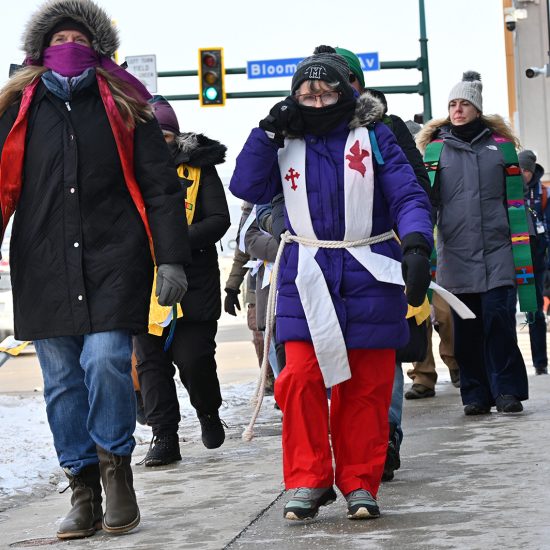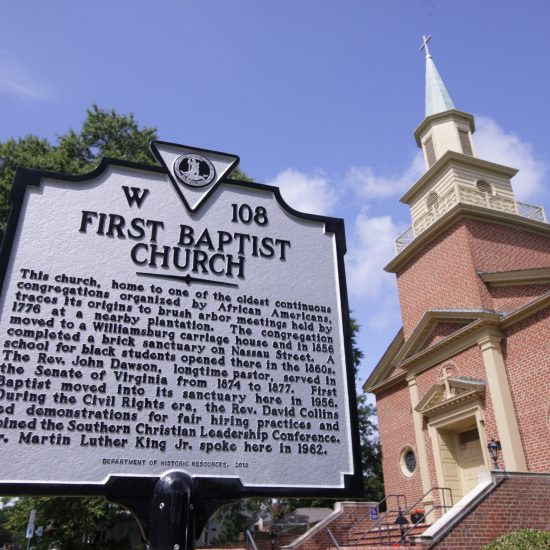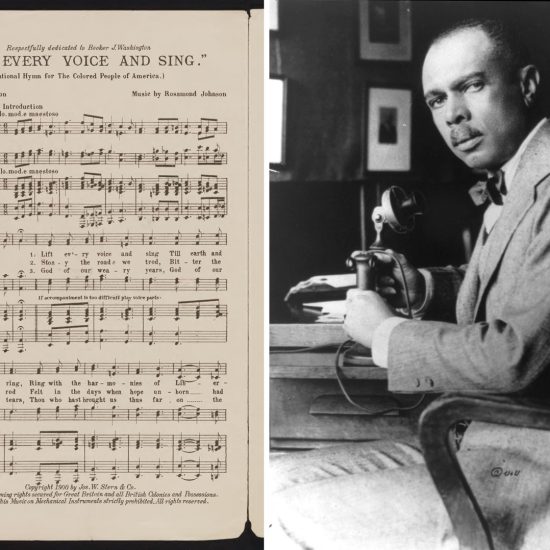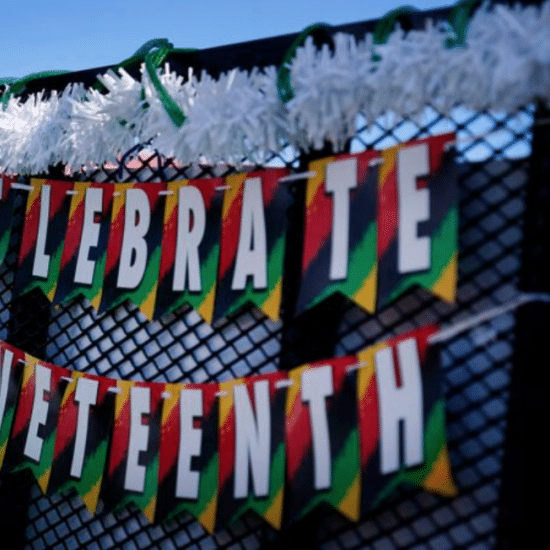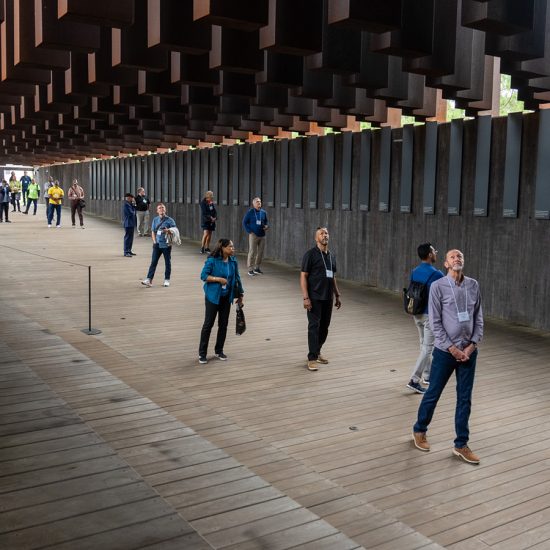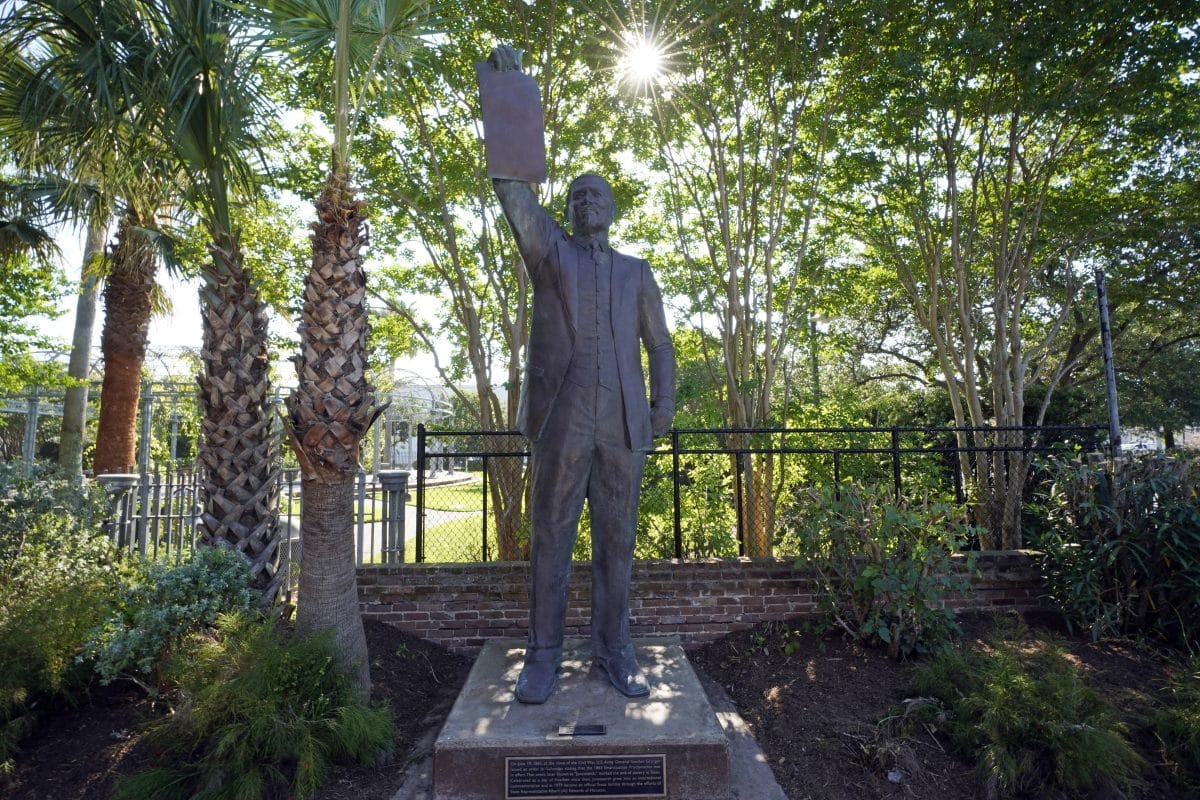
The Emancipation Proclamation had been signed more than two-and-a-half years earlier. Confederate Gen. Robert E. Lee had surrendered to Union Gen. Ulysses S. Grant more than two months before, ending the treasonous Confederates of America — an imagined white supremacist Christian nation devoted to maintaining “African slavery” in perpetuity. Upon the Confederacy’s defeat, the Emancipation Proclamation freed remaining African Americans from bondage.
Now, two months and counting after the dissolution of the Confederacy in April 1865, a seemingly odd headline in the New York Times announced a June 19, 1865, news story from Galveston, Texas: “THE SLAVES ALL FREE.”
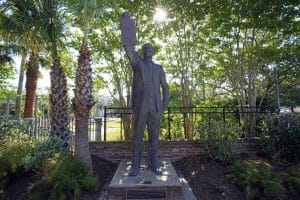
A statue in Galveston, Texas, depicts a man holding the state law that made Juneteenth a state holiday. (David J. Phillip/Associated Press)
The pronouncement, made by Union Major Gen. Gordon Granger upon his arrival in Galveston that day to an assembled crowd, declared, “The people of Texas are informed that in accordance with a Proclamation from the Executive of the United States, all slaves are free. This involves an absolute equality of rights and rights of property between former masters and slaves, and the connection heretofore existing between them becomes that between employer and free laborer.”
Great jubilation accompanied the news of freedom as word spread among the 250,000 Texans who were America’s last remaining enslaved persons.
Why had they not been informed of their freedom earlier? Later accounts varied. Texas slave owners had intentionally not informed their enslaved persons. A previous messenger of freedom had been murdered en route. Federal soldiers had colluded with Texas slaveholders to allow one final cotton crop before enforcing the Emancipation Proclamation.
No one really knew. Nor did it matter. Upon learning of their freedom, former Texas slaves quickly exercised their new rights. Some freedmen chose to remain in Texas as wage laborers. Others left to live with family members in other southern states. Still others moved far away to the North.
Among the freed-persons was Virginia native John Henry “Jack” Yates (1828-97), his wife, Harriet, and their 11 children. Born into slavery, Yates was one of the few slaves who learned to read and write, in addition to acquiring carpentry skills.
Following emancipation, the Yates family moved to Houston, where Jack became a wagon driver and a Baptist preacher, ministering to freed-persons moving into the area. In January 1866, Yates became the founding pastor of the Antioch Missionary Baptist Church, the first black Baptist church organized in Houston. Committed to the education of freed-persons, Yates and his congregation allowed the Freedmen’s Bureau to use their building as a school site.
On June 19, 1866, Texas freed-persons celebrated the anniversary of the announcement of their liberation. Anniversary celebrations became an annual holiday, Juneteenth. Initially observed in rural areas and often on the grounds of black churches, the daylong event, replete with food and recreation, also became a pilgrimage and reunion for many former Texas slaves who had moved elsewhere. Meanwhile, Yates in 1872 raised the funds to buy land in Houston for a public park for freedmen. Thereafter, Houston’s Juneteenth celebrations were held in Emancipation Park.
Following the turn of the 20th century, and with the coming of age of a new generation of African Americans, the Texas tradition of Juneteenth declined, little observed for decades. Some civil rights demonstrators in the early ’60s wore Juneteenth badges. But not until the Poor People’s March on Washington in 1968 did Juneteenth experience a true resurrection and became popular beyond Texas.
Beginning on May 30, 1968, marchers from throughout America began journeying to the nation’s capital. Among the more prominent marchers, a group from Marks, Mississippi, traveled 1,000 miles to D.C. in a caravan of 28 wagons pulled by 56 mules. They arrived on Juneteenth, replete with a parade down Pennsylvania Avenue. Made aware of the significance of Juneteenth, some D.C. marchers afterward initiated observances of the tradition in their communities.
In 1980, and thanks to the effort of Al Edwards, an African American state legislator, Juneteenth was declared an official state holiday in Texas. Edwards, who became known as “Mr. Juneteenth,” thereafter became a national ambassador for promoting the observance of June 19 as a day of celebrating and honoring African American freedom, achievement, history and culture.
Today, all but four states officially recognize Juneteenth as a holiday. Many Juneteenth organizations exist for fostering the memory and observance of Juneteenth, while major cultural institutions, such as the Smithsonian, sponsor activities. The holiday is celebrated by Americans of all ethnicities and fosters respect for all cultures.
This year, the May 25 murder of George Floyd both exposed police brutality and connected with the history of Juneteenth.
Floyd was a graduate of Houston’s Jack Yates High School in the city’s Third Ward. Established in 1926 as the Yates Colored High School during segregation, the school was named for Rev. Jack Yates who, among his many other contributions, significantly advanced educational opportunities for young black Houstonians in the late 19th century.
This June, against the backdrop of weeks of protests ignited over George Floyd’s premature death and the killing of other African Americans, Juneteenth has taken on even greater significance in commemorating the end of slavery, uniting Americans and the world in honor of black lives and celebrating racial unity. For the first time this year, many business corporations have joined states, civic organizations and other entities in observing Juneteenth as a national holiday.
This year’s Juneteenth celebrations arrive at a time when cities, states and the U.S. Congress, pressured by widespread protests that have elevated the Black Lives Matter movement, are taking significant steps to enact justice reforms to prevent further police discrimination and violence against African Americans.
Amid the nation’s long-needed racial reckoning now taking place, black leaders are calling for the observance of Juneteenth as a national holiday. Perhaps, soon, a national holiday celebrating the end of slavery and the birth of racial equality will take its place alongside America’s Fourth of July holiday in honoring freedom’s advance.
This piece originally appeared at EthicsDaily.com.

